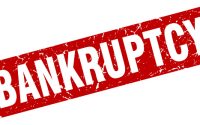EU Council Reaches Agreement On Crypto-Asset Tax Reporting
The European Council has agreed on a general approach for amending the directive on administrative cooperation in the area of taxation. The amendments focus on reporting and automatic exchange of information on revenues from transactions in crypto-assets and information on advance tax rulings for high-net-worth individuals. The aim is to strengthen the legislative framework by expanding the scope of registration and reporting obligations, and overall administrative cooperation among tax administrations.
The Council of the EU has reached an agreement on tax amendments that require the scope of reporting to be expanded, and tax authorities will be forced to exchange information involving cryptocurrencies, which must be provided by service providers reporting crypto assets,…
— Wu Blockchain (@WuBlockchain) May 17, 2023
Combating Crypto Tax Evasion
The agreement is aimed at reducing the risk of crypto-assets being used as a safe haven for tax avoidance and tax fraud, and is another example of the EU as a leader in implementing global standards. The new directive will cover a broad scope of crypto-assets, including those that have been issued in a decentralized manner, as well as stablecoins, e-money tokens, and certain non-fungible tokens (NFTs). This directive builds on the definitions set out in the regulation on markets in crypto-assets (MiCA), which the Council adopted on the same day.
The decentralization of crypto-assets has made it difficult for member states’ tax administrations to ensure tax compliance. However, the new directive will introduce a mandatory automatic exchange of information between tax authorities, which will be provided by reporting crypto-asset service providers. The cross-border nature of crypto-assets requires strong international administrative cooperation to ensure effective tax collection.
Tax Transparency
On 27 November 2020, the Council approved conclusions on fair and effective taxation in times of recovery, on tax challenges linked to digitalization, and on tax good governance in the EU and beyond. The Council recognized that the rapid development and increasing worldwide use of alternative means of payment and investment, such as crypto-assets and e-money, may undermine the progress made on tax transparency in recent years and pose substantial risks of tax fraud, tax evasion, and tax avoidance.
On 7 December 2021, the Council indicated in its report to the European Council on tax issues that it expects the European Commission to table a legislative proposal on further revision of the directive on administrative cooperation in the field of taxation, concerning exchange of information on crypto-assets and tax rulings for wealthy individuals.
Enhancing Tax Compliance
On 8 December 2022, the Commission presented a proposal for a Council directive amending directive 2011/16/EU on administrative cooperation in the field of taxation (DAC8). The key objectives of this legislative proposal are to extend the scope of automatic exchange of information under DAC to information reported by crypto-asset service providers on transactions of crypto-assets and e-money.
Experts of the member states have analyzed the proposal, and the Council presidency has prioritized work on this proposal with the objective of reaching an agreement by the ECOFIN Council at its May meeting. The new directive is expected to provide a more robust regulatory framework that will strengthen tax compliance and enhance transparency and accountability in the crypto-asset market.



